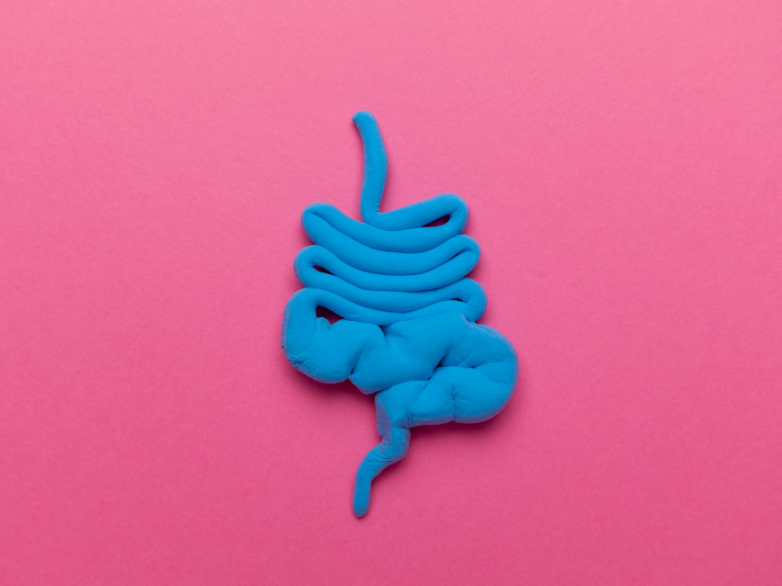
Can Crohn’s and Ulcerative Colitis Be Reversed?
Crohn’s and Ulcerative Colitis are both inflammatory bowel diseases (IBD). Ulcerative colitis affects the colon; small ulcers develop on the colon lining which become inflamed and, when infected, produce blood and pus.
Crohn’s disease affects the entire gastrointestinal tract (GIT), from the consumption of food to the excretion, from mouth to anus. It most commonly affects the terminal ileum. With Crohn’s there is transmural inflammation, which means there is inflammation through the entire wall of the organ.
Crohn’s and ulcerative colitis symptoms are similar, and usually affect people between 15-35 years old.
Symptoms of IBD

- Abdominal pain
- Diarrhoea
- Blood and/or mucus in stool
- Fever
- Fatigue
- Nausea/vomiting
- Delayed puberty
- Stalled growth
- Weight loss/unable to maintain weight
- Indigestion
- Bloating
- Anaemia
- Constipation
Why Do You Get IBD?

What causes IBDs? This will be combination of genetic susceptibility, environmental triggers and immune response.
Family history plays a big role, this is true. However, whether the disease becomes expressed comes down to the environment and various triggers. It is only when your body becomes inflamed or in an unhealthy state, does your genetic predisposition towards IBDs begin to express itself. That is epigenetics; the ability to turns genes on and off.
Ultimately, IBDs are an autoimmune issue, but the reason why the immune system starts attacking its own cells is a question that needs to be answered. You weren’t born with this, so what triggered the autoimmune response? We know that diet is a huge factor; diets that are rich in refined sugars and processed foods that promote inflammation are hugely relevant to the development of IBDs.

Other common triggers could include antibiotics. Antibiotics bulldoze through your microbiome, leaving you bereft of good bacteria and everything else that benefits your gut. In fact, antibiotics are one of the main reasons that people suffer from gut dysbiosis. Gut dysbiosis is when there is an imbalance of bacteria in the gut; there is not enough good bacteria, whilst abnormal strains of bacteria are proliferating. Gut dysbiosis is another cause of IBD.
It is important to remember that just because you’re genetically prone to Crohn’s or ulcerative colitis, it does not mean you have to develop it.
Can Crohn’s and Ulcerative Colitis Be Reversed?

Here comes the good news: yes, you can! It isn’t easy, as it is much harder to reverse health issues once you reach a diseased state, really we should be resetting and optimising our health before we get to that state, or even aiming to avoid poor digestive health and irritable bowel symptoms all together – prevention is always best!
However, if you’re reading this, then you are probably not interested in hearing ‘well you shouldn’t have got here in the first place’ because that’s unhelpful, and it’s not your fault! We are only able to take action based on the knowledge that we have, and unfortunately IBDs, nutrition and digestive health are widely misunderstood, and we do not receive enough education on good nutrition and the importance of gut health this in society. If we did, large pharmaceutical firms would probably not be making billions every year! This knowledge should be something we all know, rather than something that we have to seek out, and that’s why I share this content with all of you!

Conventional doctors are taught to diagnose and treat symptoms, so they will prescribe harsh anti-inflammatories, like steroids. This is often long-term, and the aspects of root cause are never addressed. Plus, these medications come with significant side effects, such as reducing the patient’s immune system quite significantly and we know how dangerous that can be.
On top of this, heavy medication to ‘manage’ and ‘mask’ the symptoms of IBDs really affects the quality of your life. How are you going to have energy and vitality if you’re not absorbing the nutrients from your foods? It can even lead to issues like osteoporosis down the line, due to malnutrition.
Luckily, you’re here reading this, so I can assure you that your IBD can be overcome! You need to identify the root cause, then you need to follow a comprehensive protocol to fix the underlying root cause.
How To Reverse Your IBD
Firstly, we need to identify the root cause. Is it the result of taking antibiotics? Is it gut dysbiosis? Bacterial overgrowth? Leaky gut or candida/yeast overgrowth? Chronic stress? H. pylori or parasites?
If you currently have an IBD, or know that you may be genetically susceptible to developing one, the first thing you should do to try and identify the root cause is to take an at-home functional lab test to check your gut health and stress levels. The cortisol test and organic acid test that I recommend are both linked on my website.
If you suspect parasites or H. pylori then I recommend doing a stool test, because the organic acid test does not cover this. Please note that not all stool tests rule out parasites and H. pylori effectively. The test must include at least 3 samples, otherwise something could be missed.
If functional lab testing and working with an integrative health practitioner is not financially viable for you, I would recommend going straight into something like the GI Protocol. However, if you have been diagnosed with Crohn’s or Ulcerative Colitis, I cannot stress the importance of lab testing enough. This is because there is a very high possibility of multiple imbalances and deficiencies in the body, and very rarely likely to be just one issue to work on.
Don’t be discouraged, there are only so many things that It could be!

Follow Our Instagram For Exclusive Content





 د.إ / AED
د.إ / AED



Leave a comment